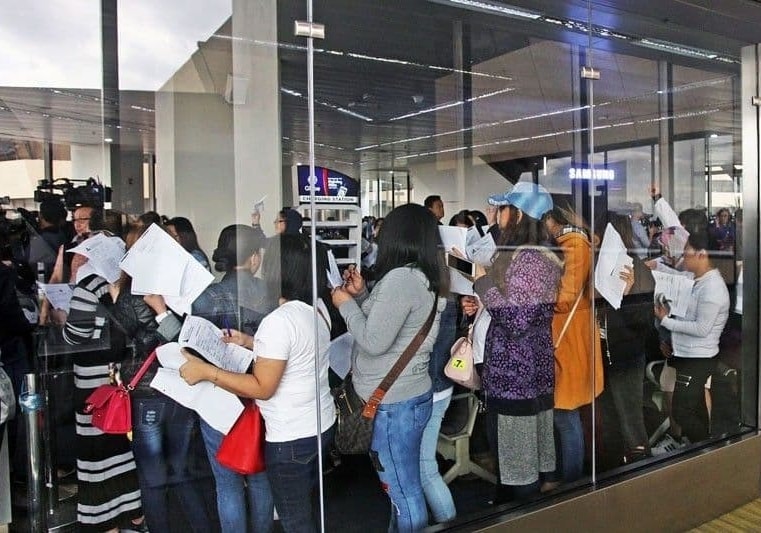Long queues inside a government office. Photo credit: Philstar.com
In the realm of governance, red tape stands as a manifestation of bureaucratic complexity that often results in inaction and delays. Ironically, this term finds its origin in the Roman Empire's bureaucratic practices where red tapes were used to denote documents that required immediate attention. Today, red tape is a form of corruption that shackles progress and frustrates citizens.
The Red Tape Predicament: Corruption in Official Guise
Corruption, whether overt or concealed, exudes a detrimental impact on society. The intertwining of red tape with corruption creates a toxic concoction that leaves citizens disillusioned and endeavors paralyzed. While corruption may sometimes result in the circulation of funds within the local economy, red tape unilaterally siphons resources away, leading to an unfruitful cycle.
The Philippines has experienced instances where bureaucratic inefficiency has led to prolonged suffering. For instance, the Emergency Shelter Assistance for Yolanda victims was disbursed two years after the calamity struck, highlighting the shortcomings of government's response mechanisms. Furthermore, housing projects in disaster-hit areas remain incomplete, leaving citizens displaced and disappointed.
Red Tape and Commitment Fees: An Underlying Nexus
For government projects financed by external loans or Official Development Assistance (ODA), red tape's monetary implications materialize as commitment fees. These fees materialize as penalties levied on the borrower for implementation delays. When projects fail to adhere to timelines, commitment fees act as an additional burden, diverting funds that could otherwise contribute to project execution.
These fees stem from undisbursed funds that would have otherwise yielded interest for the lender. Rather than nurturing local development, commitment fees act as wasteful expenses that detract from the welfare of citizens. The magnitude of this issue becomes apparent when considering the substantial sum of money dedicated to commitment fees.
COA Insights: Unveiling the Scope of the Problem
Reports by the Commission on Audit (COA) shed light on the alarming scale of commitment fees in the Philippines. Over a span of six years (2012-2017), the national government incurred commitment fees amounting to Php 1.3 billion, averaging Php 213 million annually. This revelation underscores the urgency of addressing the red tape issue to salvage valuable resources.
The 2017 COA report delves further by identifying government agencies with the highest number of projects delayed due to implementation issues. The Department of Transportation, Department of Agriculture, and National Irrigation Administration are among the entities grappling with delays. These bottlenecks arise from a myriad of factors, including sluggish procurement processes and complications in releasing counterpart funds.
Mitigating Delays: Paving a Path Forward
Efforts to mitigate project delays and commitment fees are multifaceted, demanding comprehensive strategies. Firstly, establishing a dedicated unit under the Office of the President to coordinate ODA-funded projects can enhance synergy among agencies. Additionally, opting for projects with streamlined design elements can curtail complexity-related obstacles.
Furthermore, enforcing accountability by sharing the burden of commitment fees with bureaucrats failing in their duties can serve as a potent deterrent. By directly implicating public officials in the financial consequences of red tape, the system can drive conscientiousness and efficiency.
Upholding Progress: A Collective Endeavor
Addressing red tape transcends mere policy adjustments; it requires a collective effort to uphold the welfare of citizens and the integrity of projects. Redirecting resources from commitment fees back into development initiatives can invigorate local economies and elevate the living standards of Filipinos.
As commitment fees persist as a financial drain, they serve as a stark reminder of the pressing need for change. By dismantling bureaucratic roadblocks and fostering a culture of efficiency, the Philippines can forge a brighter path toward progress, unhindered by the shackles of red tape.
-------
This is a rewrite of an article first published on 13 July 2019 with the title "Commitment Fees".








No comments:
Post a Comment